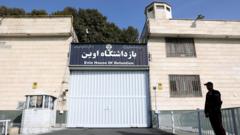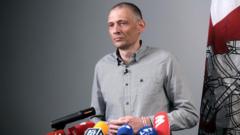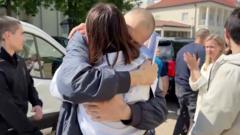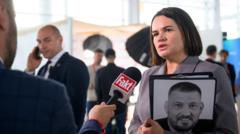René Shevan, a survivor of horrific abuses during his imprisonment and Nujeen, a resilient young Kurdish woman, reflect on their long journeys, the emotional aftermath of Assad's regime, and a vision for a more inclusive Syria that embraces diversity.
"From Fear to Freedom: René and Nujeen's Journey in Post-Assad Syria"
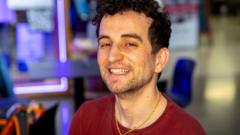
"From Fear to Freedom: René and Nujeen's Journey in Post-Assad Syria"
Two Syrian refugees share their emotional stories of trauma and hope following the fall of the Assad regime, advocating for a future of equality and acceptance.
René's journey from victim to survivor exemplifies the resilience of those who have suffered under the Syrian regime. He vividly recalls harrowing moments of torture and abuse during his imprisonment, which unfolded due to his participation in pro-democracy demonstrations and his sexual orientation. Escaping 12 years ago, René has returned to reclaim his identity, asserting proudly, "the republic of fear is gone." His statements underline a desire for freedom and equality in a country transitioning away from an oppressive past.
In tandem with René's story is that of Nujeen, a young Kurdish woman who fled to Europe with her family and who once illuminated the refugee crisis with her aspirations of becoming an astronaut. Both René and Nujeen express their cautious optimism for a future devoid of tyranny but remain keenly aware of the precariousness of change. They reflect on the challenges faced by Syria's diverse communities, advocating for protections for marginalized groups, including the LGBTQ+ community and ethnic minorities.
As refugees begin contemplating repatriation, with some European countries halting asylum applications, there's a sense of urgency and anxiety among many who fear returning to a fractured homeland. René and Nujeen embody hope for a Syria where diversity and acceptance flourish, emphasizing that the fall of Assad marked not just an ending but the start of a complex journey toward rebuilding their nation.
They share personal insights: René's memories are intertwined with a desire for safety, while Nujeen's unwavering optimism regards a future where love and respect for differences triumph over past fears. Their combined narratives underscore the ongoing struggle for justice and stability in Syria, showcasing the resilience and hope of its people in the face of uncertainty. The sentiment echoes that change is possible, and a better, more inclusive Syria can emerge amid the rubble of its war-torn past.








